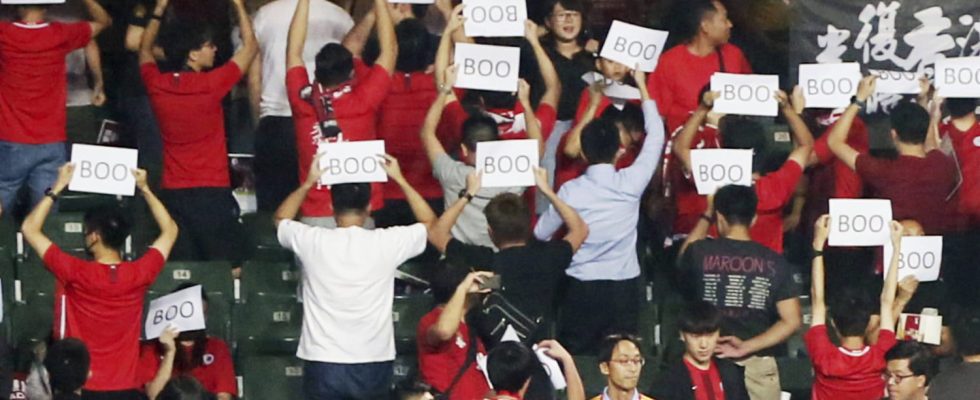The survival of this great power’s football team has been threatened for several years.
One of the richest countries in the world is losing its national football team. Like all its sports federations, the name of its Football Federation was changed in January 2023, like its logo and therefore its jersey. The anthem played during meetings has also been changed, for even longer. This country is, however, a great economic power, with a GDP per capita higher than France: 50,000 dollars per capita per year, compared to around 40,000 for France. But his independence is called into question, and the supporters of his national team do not appreciate it.
This is the territory of Hong Kong, whose sovereignty is now widely questioned by China. Like the 82 other Hong Kong sports organizations, the Football Federation was forced to change its name to include a mention of China, under penalty of losing its funding. The “Hong Kong Football Association” thus became the “Football Association of Hong Kong China”.
The Chinese anthem (“The March of the Volunteers”) has become, since 1997, the official anthem of Hong Kong. Hong Kong supporters have therefore made it a habit to whistle their own anthem. Some even turn their backs when it is sung, or sing in response the pro-democracy song created during the 2019 revolts: “Glory to Hong Kong”. Banners with the inscription “Hong Kong is not China” were also brandished during certain matches.
The Hong Kong Federation has also been sanctioned on several occasions by FIFA, receiving fines of several tens of thousands of euros for “disorder during the national anthem” and “the use of objects to transmit an inappropriate message during a sporting event. In response, a new security law was introduced by the Chinese government: insulting the national anthem is now punishable by a maximum penalty of 3 years in prison and a fine of 6,000 dollars. Dozens of police officers surround the most popular sections during the home team’s final matches.
Hong Kong has had its own football federation, member of FIFA, since 1954, when the territory was still under the control of British colonial power. The country was “returned” by the United Kingdom to China in 1997, at the end of the 99-year lease provided for by the “Extension Convention” signed in 1898 between the two superpowers. Recent pro-democracy demonstrations have led to a tightening of Chinese influence on Hong Kong’s political and social life, threatening the independence of the country but also of its sports organizations and teams. Football stadiums then became a privileged place for protests and democratic and patriotic demands.
